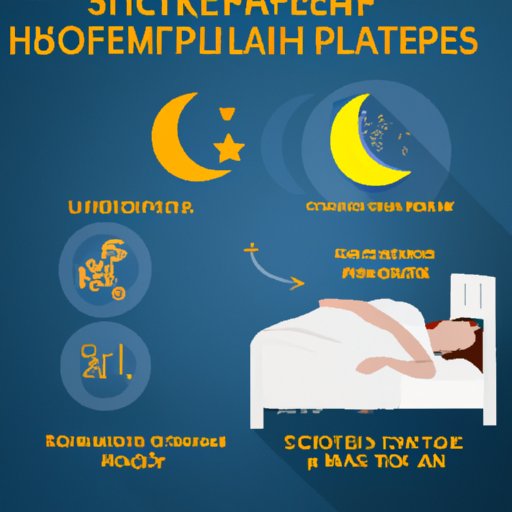Introduction
Biphasic sleep is a type of sleep pattern that involves two distinct periods of sleep separated by a period of wakefulness. This pattern can be seen in many different cultures around the world, and it has been studied extensively by scientists who are interested in how different types of sleep patterns impact mental and physical health. The purpose of this article is to explore the advantages and disadvantages of biphasic sleep, examining the scientific evidence to determine whether this sleep pattern is healthy or not.

Examining the Scientific Evidence Supporting Biphasic Sleep
In order to determine whether biphasic sleep is healthy or not, it is important to look at what the research says about this sleep pattern. Studies have shown that people who practice biphasic sleep tend to experience improved alertness during the day and better overall cognitive performance. They also tend to have better moods and less stress than people who practice monophasic sleep. However, there is still some debate as to whether biphasic sleep is beneficial or harmful, with some researchers arguing that it may disrupt the body’s natural circadian rhythm and lead to long-term health problems.
The pros and cons of biphasic sleep according to scientists vary depending on the individual and their lifestyle. For example, some people may find it helpful to take a nap during the day, while others may find that it interferes with their ability to get enough quality rest at night. Additionally, some people may find that they need more sleep than what is provided by a biphasic sleep pattern, while others may find that it provides them with enough rest.
Investigating the Impact of Biphasic Sleep on Mental Health
When assessing the potential benefits of biphasic sleep, it is important to consider how it affects mental health. Studies have shown that people who practice biphasic sleep tend to have better moods and lower levels of stress than those who practice monophasic sleep. This is likely due to the fact that taking a nap during the day can provide an opportunity for relaxation and rejuvenation, which can help reduce anxiety and improve overall well-being.
Additionally, studies have suggested that biphasic sleep may improve cognitive function. Taking regular naps during the day can help increase alertness and focus, which can lead to better concentration and memory. It is important to note, however, that these effects may not be consistent across all individuals and further research is needed to fully understand the relationship between biphasic sleep and cognitive performance.

Examining the Effects of Biphasic Sleep on Cognitive Performance
When looking at the impact of biphasic sleep on cognitive performance, it is important to consider how it affects concentration and memory. Studies have suggested that people who practice biphasic sleep tend to have improved concentration and memory compared to those who practice monophasic sleep. This is likely due to the fact that taking regular naps during the day can help the brain process information more efficiently and store it more effectively.
Additionally, research has suggested that biphasic sleep may also have a positive effect on attention span. Taking regular naps during the day can help to keep the mind alert and focused, which can help to improve overall productivity. It is important to note, however, that these effects may not be consistent across all individuals and further research is needed to fully understand the relationship between biphasic sleep and cognitive performance.

Comparing Biphasic Sleep to Monophasic Sleep Patterns
When determining whether biphasic sleep is healthy or not, it is important to compare it to monophasic sleep patterns. Monophasic sleep is the traditional sleep pattern that most people follow, where they sleep for a single, uninterrupted period of time. This type of sleep pattern has been shown to have numerous benefits, including improved alertness, better moods, and decreased stress levels.
However, when compared to biphasic sleep, monophasic sleep has some drawbacks. For example, it can lead to feelings of fatigue during the day and difficulty concentrating. Additionally, some people find that monophasic sleep does not provide them with enough restful sleep. As such, it is important to consider both the advantages and disadvantages of biphasic and monophasic sleep when determining whether one is healthier than the other.
Conclusion
In conclusion, biphasic sleep can provide numerous benefits, including improved alertness, better moods, and decreased stress levels. Additionally, it may also have a positive effect on cognitive performance, helping to improve concentration and memory. However, it is important to note that the advantages and disadvantages of biphasic sleep vary from person to person, and further research is needed to determine whether this sleep pattern is truly healthy or not.
Overall, it is clear that biphasic sleep has its own unique set of benefits and risks. When deciding whether this sleep pattern is right for you, it is important to consider your own lifestyle and needs, as well as the scientific evidence available. Ultimately, only you can decide whether biphasic sleep is healthy for you.
(Note: Is this article not meeting your expectations? Do you have knowledge or insights to share? Unlock new opportunities and expand your reach by joining our authors team. Click Registration to join us and share your expertise with our readers.)
